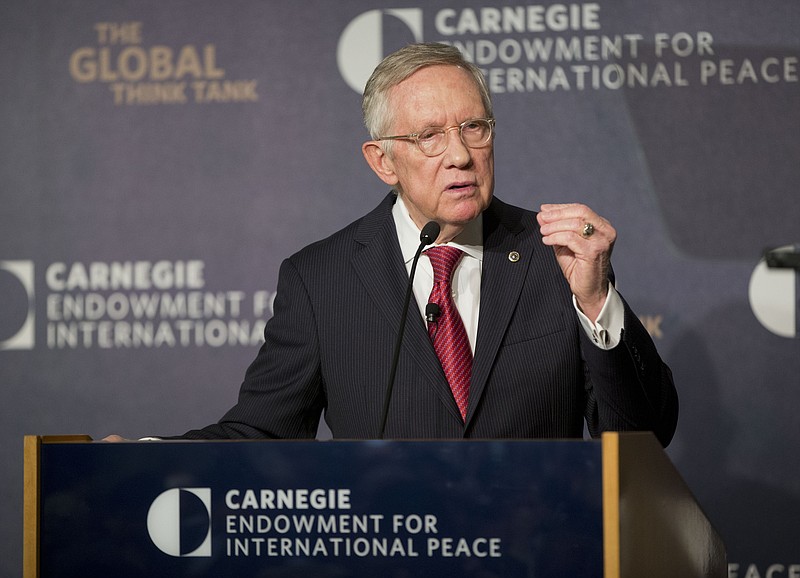While the U.S. Senate voted 98-1 in May to approve the Iran Nuclear Agreement Review Act, it now seems clear Democrats already understood that a resolution of disapproval on the final agreement would never see the light of day.
They obviously felt no hesitation in voting with Republicans on the legislation because they knew they would never have to cast an up or down vote on the agreement. Instead, they would need only 40 procedural votes to prevent Republicans from ending debate and advancing to a final vote on the deal, which is what happened Thursday.
When Democrats reached 40 votes, they even could afford to let Sen. Ben Cardin, D-Md., who brokered the Iran Nuclear Agreement Review Act with sponsor Sen. Bob Corker, R-Tenn., and Sen. Joe Manchin, D-W.Va., a vulnerable senator in a conservative state, vote with 54 Republicans and the two Democrats who opposed the deal, Charles Schumer of New York, and Bob Menendez of New Jersey. With 58 votes, opponents fell two votes short of what was needed.
The words Democrats spoke in April and May about the necessity of Congress having a say in the agreement turned out to be as hollow as the deal itself.
The Obama administration's effort to keep the negotiations away from Capitol Hill, said Sen. Chris Coons, D-Del., a member of the Foreign Relations Committee, "goes against, in a gut sense, the view that many in Congress have, that our constitutional framework imagines congressional relevance to the conduct of foreign policy."
He later bloviated about wanting "the Senate to be relevant again in foreign relations and be more than just a speed bump on the way toward agreements internationally."
Coons, in the end, voted not to let Congress have a say.
"It's important that the president be able to fully exercise his Article II [constitutional] powers but just as important for Congress to exercise its Article I powers," said Sen. Tim Kaine, D-Va., who also had pushed for increasing the role of Congress.
Kaine, in the end, voted for Congress not to have that role.
Despite the fact the nuclear agreement hadn't been concluded - much less seen by Congress - when the Senate voted on the Review Act in May, some lawmakers already knew the fix was in when President Obama dropped his opposition to it.
He only needs 34 senators to agree with him to sustain a veto of the bill, said Sen. Ron Johnson, R-Wis.
"That's a pretty low threshold," he said. "He probably came to the conclusion that no matter what the deal is, he can hurdle that bar."
The U.S. House later voted to approve the review bill 400-25, but 151 House Democrats nevertheless signed a letter to Obama backing the administration's negotiations and virtually agreeing to vote for the agreement no matter what.
If the four months between the signing of the Iran Nuclear Agreement Review Act and Thursday's procedural vote did anything, it may have awakened the American people to what a poor agreement was negotiated. But it did not move the Democratic Senate minority that decided that body didn't need to have a vote on the deal one iota.
So, with that, as Sen. Lindsey Graham, R-S.C., said to Democrats Thursday about the Iran-empowering agreement:
"You own this - you own every 'I' and every 'T' and every bullet and everything to follow."
